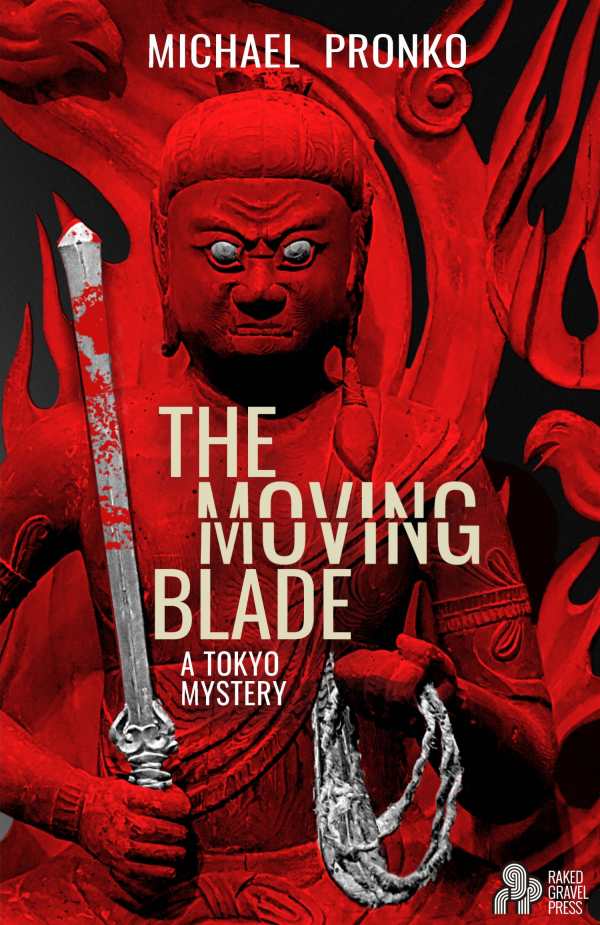The Moving Blade
Fun and thrilling throughout, The Moving Blade is an excellent potboiler.
Michael Pronko’s action-packed mystery novel The Moving Blade is an excellent addition to the popular and critically acclaimed Detective Hiroshi series, full of East Asian and international politics and plenty of sociological commentary. For Western audiences, this book provides both entertainment and an immersion in the culture of one of the world’s largest and most important cities.
When American diplomat Bernard Mattson is found brutally murdered, the Tokyo police discover that Mattson is just one corpse among many. Mattson’s daughter, Jamie, is also targeted by a gang of ruthless killers. She and Detective Hiroshi Shimizu learn that Mattson’s extensive research files are the cause; if released to the public or given over to another government, they could forever alter the course of American-Japanese and American-East Asian relations.
This book moves at a fast pace. Wonderful writing snaps with crisp dialogue and sometimes grotesque descriptions of gory violence. Those with weaker stomachs may need to skip a few pages here and there.
One of the big appeals of this detective story is that it proffers excellent insights into the minds of the everyday citizens of Japan, insightfully tackling thorny issues like recent nuclear disasters, contention between Japan and its neighbors over mostly uninhabited islands, and the presence of thousands of American troops.
Characters are all believable; some are even likable. Jamie Mattson is a determined, brave, headstrong young woman who is both a survivor and a good amateur investigator. Running against detective novel tropes, Detective Hiroshi is neither an eccentric amateur nor an overly cynical and amoral working stiff; rather, he’s a simple man who likes coffee and pursues justice against great odds. The story’s villains, including professional criminal Hideyasu Sato, are vicious and bloodthirsty antagonists, yet they remain utterly human.
At times the novel pays too much attention to the ins and outs of Japanese martial arts and weapons, especially commonly referenced blades like the tanto sword or the katana. Although the novel begins by quoting samurai-era classics like A Book of Five Rings, there are moments when related talk seems superfluous. The heavy incorporation of italicized Japanese words is grating, especially as such terms are often not adequately defined.
The plot is engaging from the first page, and although it is not really a question of finding out who is guilty, the book’s central mystery never fails to demand attention. The novel’s conclusion is rewarding and worthwhile.
Fun and thrilling throughout, The Moving Blade is an excellent potboiler—an exciting modern mystery that focuses on the chiaroscuro of international diplomacy and organized crime.
Reviewed by
Benjamin Welton
Disclosure: This article is not an endorsement, but a review. The publisher of this book provided free copies of the book and paid a small fee to have their book reviewed by a professional reviewer. Foreword Reviews and Clarion Reviews make no guarantee that the publisher will receive a positive review. Foreword Magazine, Inc. is disclosing this in accordance with the Federal Trade Commission’s 16 CFR, Part 255.

